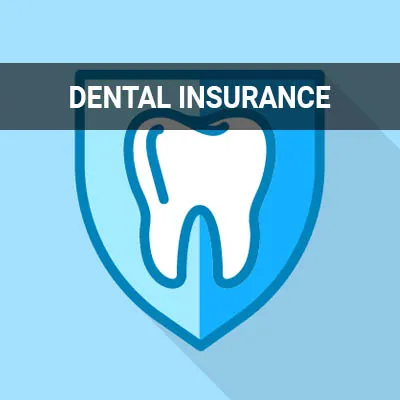How Does Dental Insurance Work Des Plaines, IL
If you are in the market for dental insurance, you may be curious about how it works. Dental insurance plans come straightforward, and you can make an informed decision when selecting the right plan for your dental needs.
When you enroll in a dental plan, you enter into an agreement. Individuals who purchase a dental plan must pay monthly insurance premiums, along with any additional copays and deductibles that may be a part of their particular dental plan. The insurance company will pay your dentist for services covered at an agreed-upon reimbursement level.
To determine whether or not Apple Family Dental accepts your dental insurance, call us at (847) 553-4848 to learn more. We are proud to serve patients in Des Plaines and the surrounding area.
Shopping for Dental Insurance
When choosing dental insurance, many people want the insurance plan to include their current dentist. Most providers have websites with a directory of dentists within their network.
One can visit their dental insurance carrier's website to search for their dentist's in-network status. If their dentist is not within the network, patients can shop around for a different dental insurance provider. Alternatively, they can select a dentist in-network that accepts their insurance.
“When choosing dental insurance, many people want the insurance plan to include their current dentist.”
What to Look for in a Dental Insurance Plan
There are several options available for dental insurance, catering to a variety of needs. As such, types of coverage, deductibles, and premiums vary accordingly. To help narrow down their options, patients should first determine what plans are available in their area. Certain dental insurance companies only offer coverage to certain states, so begin by ruling out any impossibilities.
Next, patients should look for a plan that covers several dentists and dental practices – whether they have a preferred provider and practice or not. It is always best to have more options. Additionally, patients should consider all costs – including the monthly premium, deductible, and any co-pays they may have to pay. It is also important to note the annual maximum and what types of procedures are covered.
“To help narrow down their options, patients should first determine what plans are available in their area.”
Purchasing Dental Insurance
Purchasing dental is a personal issue and depends on how much dental work the patient needs and how many family members they have. Generally, the more dental work required and the more family members, the more value for the month.
The typical dental insurance plan covers preventive care: checkups and cleanings at 100% (no deductible), basic procedures (e.g., fillings and extractions) at 70%, and major procedures (e.g., crowns, bridges, and root canals) at 50%. Some procedures may be considered basic by one carrier and major by another, so patients must speak with their insurance carrier before getting dental treatments to understand the breakdown of costs and coverage.
Like health insurance plans, dental plans typically have a deductible — the amount one has to pay out of pocket each year before the plan starts to cover its portion of costs. Most plans cap the total amount they will pay for care per plan member per year. Any dental expenses over the plan's cap (or maximum) become the patient's responsibility.
“Purchasing dental is a personal issue and depends on how much dental work the patient needs and how many family members they have.”
Check out what others are saying about our dental services on Yelp: How Does Dental Insurance Work in Des Plaines, IL
Individual vs. Family Dental Insurance
While some patients only need coverage for themselves, others may require coverage for the entire family. Both individual and family dental insurance plans can be purchased through the U.S. government's Marketplace or directly through a carrier. However, premiums for individual plans are typically lower than for family plans, as they involve only one individual.
In contrast, family dental insurance plans generally have higher premiums. However, most allow for two annual exams per plan member. It is essential for patients to find the right type of coverage for them – and, if applicable, their families – that still remains affordable.
“While some patients only need coverage for themselves, others may require coverage for the entire family.”
Questions Answered on This Page
Q. How can I know if my dentist accepts my insurance?
Q. Is dental insurance worth it?
Q. What should I look for in a dental insurance plan?
Q. What are the differences between family and individual dental insurance?
Q. How can I find an affordable dental insurance plan for my family and me?
People Also Ask
Q. What factors should people consider when choosing a dental insurance plan?
Q. What is a health savings account?
Q. Who is the billing specialist?
Choosing Dental Insurance
Purchasing dental insurance can be an overwhelming experience. Luckily for many people, the plan offered by their employer or professional association is the best possible option. Still, in many cases, it may be useful for patients to talk to their dentists to see what plans they accept.
Many dental offices can recommend affordable plans that cover their patients' needs. Patients should look for a policy with a high spending cap if they know they will need major work done, while patients who require less work done can look for a policy with a lower spending cap.
“Many dental offices can recommend affordable plans that cover their patients’ needs.”
Frequently Asked Questions
Q. Can I be covered under multiple dental insurance plans?
A. You may, but one plan will probably be considered your primary plan. If this is the case, the primary plan will go toward your dental care first, with the other plan(s) covering the remaining costs. However, the plans cannot cover more than 100% of the treatment cost.
Q. What are the different kinds of dental plans?
A. Like health insurance plans, dental insurance plans are generally categorized either as Indemnity (e.g., HMO) or managed-care (e.g., PPO) plans. These plans mainly differ in the patient's choice of providers, how expenses are paid, and out-of-pocket costs.
Q. Why is dental health important?
A. Many people mistakenly believe that dental health is isolated from overall health. In reality, each system of the body is interrelated. In other words, neglecting your oral health could easily have disastrous effects on your overall health.
Q. Do I really need a dental insurance plan?
A. Yes. It can be costly to keep up with dental health, especially if you are making your routine checkups and cleanings as directed. Choosing the right dental insurance plan can help keep costs low while promoting proper healthcare.
Q. Whom should I talk to about any questions I have about my dental insurance plan's benefits or a claim?
A. It is best to directly contact your insurance carrier for any questions and concerns about your benefits or claims.
Dental Terminology
Call Us Today
If you have questions about dental insurance options or whether or not a service is covered, call Apple Family Dental in Des Plaines at 847-553-4848 to learn more.
Helpful Related Links
- American Dental Association (ADA). Glossary of Dental Clinical Terms. 2024
- American Academy of Cosmetic Dentistry® (AACD). Home Page. 2024
- WebMD. WebMD’s Oral Care Guide. 2024
About our business and website security
- Apple Family Dental was established in 1994.
- We accept the following payment methods: American Express, Cash, Check, Discover, MasterCard, and Visa
- We serve patients from the following counties: Cook County and Lake County
- We serve patients from the following cities: Des Plaines, Niles, Glenview, Morton Grove, Park Ridge, Mount Prospect, Northbrook, Wheeling, Skokie, Arlington Heights, Buffalo Grove, Schaumburg, and Prospect Heights
- National Provider Identifier Database (1558090167). View NPI Registry Information
- Norton Safe Web. View Details
- Trend Micro Site Safety Center. View Details
Back to top of How Does Dental Insurance Work










